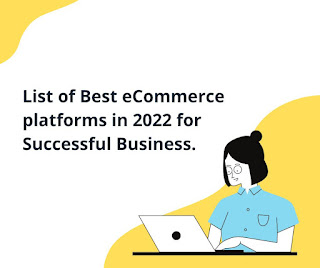If you are wondering about the features and functionalities of Magento2, you are not sure about its credibility, and lastly, you are in great confusion about upgrading your eCommerce store with Magento2. If your answers for these are yes and true, then you are at the right place.
After Magento Development officially announced the end of service for Magento1 in June 2020, the Magento2 version came into play. With the promise of better performance and security norms, Magento2 has dramatically changed things for Magento eCommerce stores. We are going to discuss the key differences between Magento1 & Magento2 one by one.
We will be covering:-
Performance
Mobile-friendly
Architecture
Security
Functionality
SEO parameters
Extensions
Support
Let's have a look at how Magento2 differs from Magento1 in terms of features and functionality.
Performance
An eCommerce store’s performance plays a very crucial role in its success. The main problem with Magento1 was its performance. Slow loading time, limited features, limited compatibility, and other issues contribute to the poor performance of the store.
Magento2 offers a 50% faster loading time in comparison to Magento1 and also it provides a 38% faster checkout process in the store. On the other hand, Magento1 takes 2 seconds to load the homepage of the store which is incredibly slow for an eCommerce store.
Moreover, it is recommended to use a good hosting service for an eCommerce store because with slow loading time there are high chances of not getting indexed by search engines which can lead to poor search engine ranking for pages of the eCommerce pages.
Magento2 offers great store’s performance when compared to the same of the magento1.
Mobile-friendly
With the emergence of mobile devices and applications and people spending a large amount of time on mobile, mobile-friendly eCommerce stores have become a priority for every eCommerce business owner.
Magento1 has a pretty poor record in mobile-friendly optimization. With slow loading time and non-mobile-friendly themes, Magento1 does not provide mobile-friendly stores that can grab the attention of users with responsive themes or fast-loading pages.
Whereas Magento2 is a much improved and mobile-friendly version. It offers a fast loading time for pages, and responsive themes that load super fast and are optimized for mobile view. Additionally, progressive web apps(PWA) permit developers to create eCommerce websites that have a native mobile app experience.
Definitely, Magento2 offers a far better mobile-friendly store than that Magento1.
Architecture
The architecture of Magento2 is very much different from that of Magento1 because it is based on PHP7 which gives more customization and optimization options. Also, Magento2 has new technologies like Zend(1 & 2), NGINX, Varnish, Composer, Symfony, and Redis; which were not supported in Magento1.
Magento2 with improved architecture gives better performance because of new technological stacks included. Moreover, Magento2 is supported by the latest PHP versions which means better code quality and performance to deliver exceptional functionality for the store.
Clearly, Magento2 is a winner here.
Security
Magento2 has a lot to offer when it comes to security. On the other hand, Magento has stopped releasing security updates and patches for Magento1, which increases the security threats and risk of hacking. In Magento2 users get many strong security features automatically but they still have to supervise PCI compliance.
The need for changes in PCI is minimal as if users make a lot of changes in PCI then it will be tough to install updates and patches which will be coming in the future. Hence, Magento2 provides better security to the store and customer’s data and information.
Functionality
When the comparison between magento1 and magento2 happens for the functionality terms then magento2 has great functionalities which ease the workload of the store owner.
Conclusion
Since 2008, a lot has changed. Blu-ray people are no longer produced by Samsung. The MacBook Air is being taken out in preference for newer generations. Magento 1 has finally reached the end of its life cycle.
Has Magento 2 progressed enough for you to consider it as your next eCommerce platform? Is it time to try one of the many innovative options available? That is a question that only you can answer.



.jpg)



.jpg)